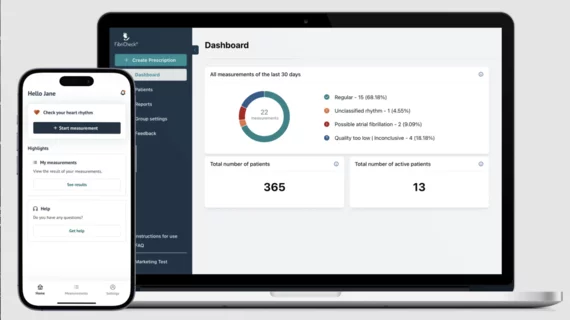FDA clears heart rhythm AI that turns smartphones into medical devices
FibriCheck, a Belgium-based healthcare technology company, has gained U.S. Food and Drug Administration (FDA) for its artificial intelligence-powered digital platform that uses smartphone cameras to obtain heart rhythm measurements.
FibriCheck’s technology requires a patient to place their finger over a smartphone camera for 60 seconds, with no additional devices required. The company’s algorithms then evaluate findings for signs of heart rhythm conditions such as atrial fibrillation (AFib).
This FDA clearance covers FibriCheck’s entire platform, including its AI algorithms, smartphone application and provider portal.
“Receiving FDA clearance for a software-only application using consumer devices was a difficult challenge, but it showcases the competence and excellence of our team,” Lars Grieten, FibriCheck’s CEO and co-founder, said in a statement. “This is just the beginning. Our achievement serves as a foundation for future growth as we continue to expand our capabilities based on our AI advancements. We are dedicated to redrawing the blueprint of heart rhythm disorder monitoring and management by paving the way to a healthier future, delivering the right diagnosis to the right person at the right time.”
The company has been increasing its presence in the United States in anticipation of this latest approval. It opened an additional office in New York, for example, and launched new collaborations with multiple U.S. hospitals. According to FibriCheck, its offerings can now be prescribed by a healthcare provider—but the goal is to eventually have it available as an over-the-counter therapy for any patient hoping to better monitor the health of their cardiovascular system.
The company pointed to an April 2024 study published in EP Europace as evidence of its technology’s potential. Researchers reviewed data from 50 patients, finding that FibriCheck was linked to a sensitivity of 98.3% and specificity of 99.9% when detecting signs of AFib.

